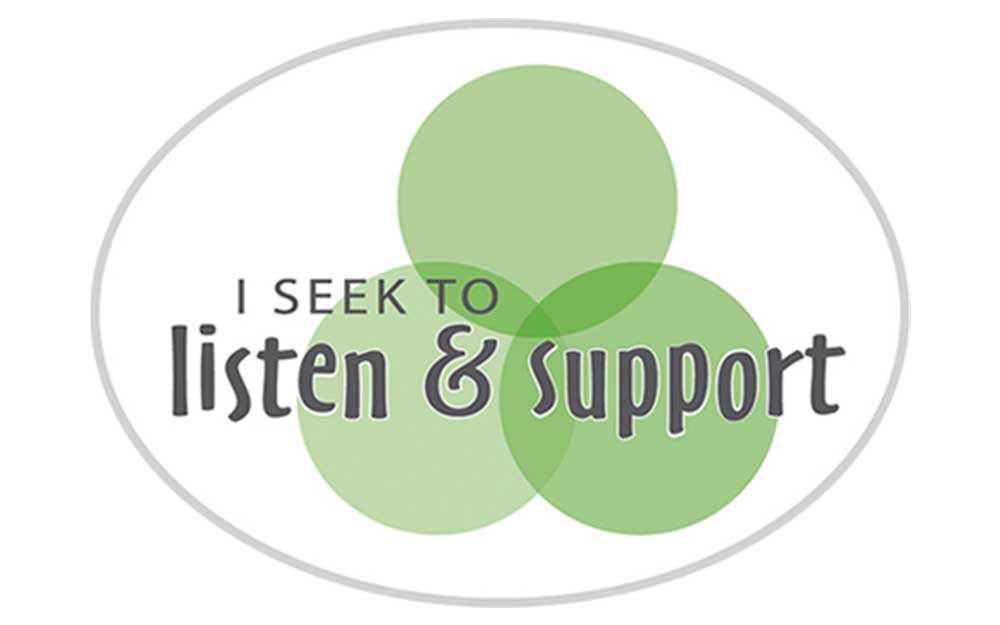When a person is struggling with their mental health, it can be difficult to find the courage to talk about it. Below are 7 Promises a Safe Person can make in order to be a supportive, compassionate person when someone confides in you. They’re provided by the Wise Initiative for Stigma Elimination, a nationwide coalition of organizations and individuals promoting inclusion and support for those affected by mental illness and addiction/substance use through the advancement of evidence-based practices for stigma reduction efforts.
1. ACKNOWLEDGE THAT REACHING OUT FOR SUPPORT IS A STRENGTH.
Respond to the person by recognizing the strength it takes to speak up. They may feel nervous or unsure, so reassure them that this is a positive step. Express your own gratitude for their trust in you as someone who can offer support.
2. LISTEN AND REACT NON-JUDGMENTALLY.
Listen without bias by acknowledging that the person’s feelings are legitimate, even if you’re struggling to understand their perspective. Give their vulnerability your full attention and care in culturally appropriate ways.
3. RESPOND IN A CALM AND REASSURING MANNER.
You may have an emotional reaction to what you’re hearing. Remind yourself that your feelings can be addressed afterward. Wait until the person is done speaking before you respond. When you do, offer realistic reassurance. Exhibit acceptance, empathy, and respect.
4. REFLECT BACK THE FEELINGS, STRENGTHS, IDEAS I HEAR WHEN LISTENING.
Repeat or rephrase what you heard in order to check for understanding. Call attention to concrete examples of their resilience and strength. Listen for action they believe would be helpful and are ready to take.
5. ASK HOW I CAN BE HELPFUL AND RESPOND AS I’M ABLE.
Ask how you can help. If the person asks for your input, make suitable suggestions. Follow through if they accept your offer. If you aren’t able to help in a way they propose, let them know, and work together to find a compromise.
6. DO WHAT I CAN TO CONNECT TO OTHER SUPPORTS IF ASKED.
Ask if the person would like to hear about other support options before you offer. If they accept, connect them to outside resources that may offer further assistance.
7. MAINTAIN CONFIDENTIALITY AND COMMUNICATE IF EXCEPTIONS EXIST.
As a rule, maintain confidentiality. If you feel you’re the sole source of the person’s support, ask if there is someone you could engage in supporting them as a team. Inform them that while you respect their rights, their safety is your top priority, and you will take action to ensure it if necessary. If your professional ethics require you to take such steps, inform them early in the conversation.
You can download or order a Safe Person decal here.
For additional information on what to say and what not to say to someone with a mental health challenge, click here.


